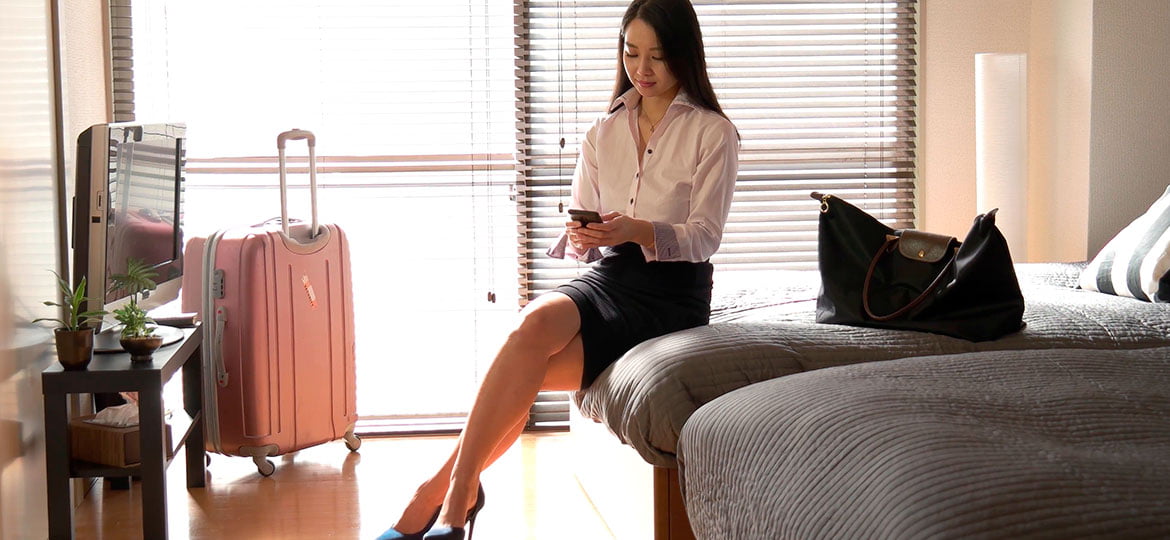
Chatbot in the hospitality: this is one of the main trends in terms of service and efficiency of communication with guests. Directly related to artificial intelligence, this type of technology is able to offer exceptional experiences.
For those who appreciate the digital interactions and usually opt for self-service, the solution will be most welcome, without a doubt. Also called virtual assistants, chatbots are able to dialogue with people “naturally” as long as they are programmed and configured correctly.
It is quite true that robots interacting with humans in a simple, direct and “genuine” way were until very recently an exclusivity of Hollywood films and a subject reserved only for large corporations.
However, today this is already more present than imagined in various industries and a number of different applications. In this article, we’ll show you how to use a chatbot in hospitality. Don’t miss the reading. Check it out!
After all, what’s a chatbot?
First of all, it’s important to clearly understand what a chatbot is. As you’ve just read, we mentioned the terms “virtual assistants” and “robots” to refer to it, right?
Well, these denominations are perfect to describe it, but from a more functional perspective, a chatbot can be described as a software that executes and manages communication with customers through a conversational interface.
In short, this technology enables dialogue between machines and humans.
In what channels can it be used?
The first observation to make is that what determines the virtual assistants’ use is the company’s needs and the interaction characteristics with the clientele.
In the hotel sector, they can be deployed in several channels, such as:
- social networks (Facebook Messenger and Twitter);
- web (on your site or on a specific landing page);
- own applications;
- Telegram;
- Skype.
With the exception of their own applications, guests will be able to take advantage of this tool without having to install any application kind on their devices. In addition, it is worth mentioning that telephone support can also benefit from the chatbots use, including SMS and connection.
How to use a chatbot in a hotel?
We now come to the part that we intend to address with this content: the chatbots use to improve service in the hotel industry.
In an objective way, we can highlight its application to:
Booking channels optimization
The site (online chat), email and phone – these are the channels most used by hotels to make reservations. Guests, in turn, use them not only to check the prices and the availability of the rooms but also to seek information and take the doubts.
In this context, chatbot fits like a new attendant, responding to requests instantly, any time of the day. The difference is that if for some reason the person has to suspend conversation, he will be able to return from the point in which stopped at the previous contact.
Sending information in the pre-stay period
An interesting idea to favor the relationship with the guests is the information sending during the pre-stay period. To this end, virtual assistants can be configured to send unique upgrade possibilities and/or services through messaging applications (Telegram and Facebook Messenger).
The key to this is that the communications will hardly go unnoticed. The hotels only have to win, because even if there is no interest in the offers, this approach will show commitment to the delivery of a qualified service.
Otherwise, that is, if there is interest, an important step will have been towards customer loyalty. Understand that by providing this engagement type, the brand will gain high value to the market.
Room service innovation
Another chatbot use in hotels is in room service. To illustrate it, the guest can make his requests not only when he is in the hotel, but if he wants before he even gets to him.
There would be no imposition of telephone calls or contacts via e-mail, for example. As if that weren’t enough, such an application can also be used proactively.
And what does it mean? It means that it’s possible to use this technology to suggest products in advance, increasing the average ticket of the stay.
Gaining knowledge about the public
Due to AI that accompanies an organizational interface, dialogues that occur with clients are interpreted according to different stages of their buying journey.
For this reason, hosting establishments will have better information about its audience: it’s possible to schedule questions to find out what types of programming he would like to do when is in town, what drinks and treats will enjoy when is in the room, etc.
Personalized services provision
By knowing the public better, services will be able to provide in a totally personalized way. Without a doubt, this is one of the main advantages of using chatbot in hospitality.
Given the premise that the tool is capable of identifying each client profile, there is no reason to discuss the truth that the service quality will be improved and enriched.
In addition, the virtual assistant can also be fed with local activities, the most appreciated restaurants, cultural and sports programming, and a host of other events. For the clientele, this is seen as a differential, contributing even more to the loyalty process.
As you may have noticed, the hospitality industry has a lot to benefit from using chatbots. And don’t think it’s just the big networks that can take advantage of them. Far from that, the solution is available to everyone.
Lastly, keep in mind that by improving customer service, they also have the potential to increase revenue and profit from the business.
What did you think of this article about chatbot in hospitality? Did you like it? Do you still have any questions about the subject? If so, contact Push now. We’re ready to answer all your questions and help you better understand this tool.


